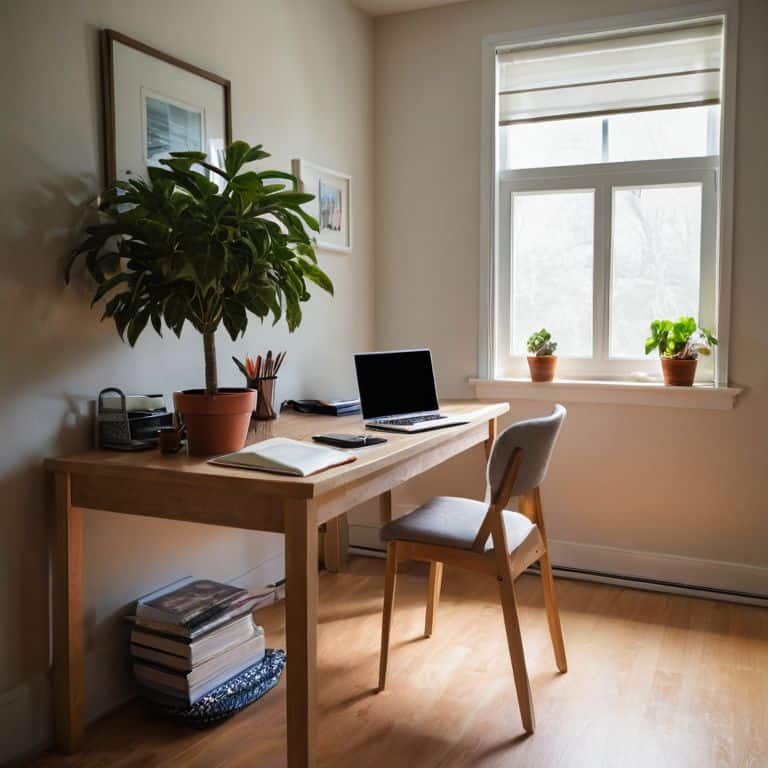I still remember the Sundays when I’d feel a sense of dread wash over me, knowing that the weekend was coming to a close and another hectic week of work was looming ahead. The pressure to be constantly “on” and responsive, even on weekends, had taken a toll on my mental and physical health. If you’re struggling to break free from the cycle of weekend work, you’re not alone. The truth is, learning how to stop working on weekends is not just about setting boundaries, but about creating a sustainable rhythm that allows you to recharge and refocus.
In this article, I’ll share my personal story of burnout and recovery, and provide you with practical, actionable advice on how to stop working on weekends. You’ll learn how to prioritize self-care, set realistic boundaries, and create a digital calendar that supports your well-being, not just your workload. My goal is to help you ditch the Sunday scaries and start enjoying your weekends again, without the guilt or anxiety. By the end of this guide, you’ll have a clear plan to reclaim your downtime and start building a healthier, more balanced relationship with work.
Table of Contents
Guide Overview: What You'll Need

Total Time: 1 hour 30 minutes
Estimated Cost: $0 – $10
Difficulty Level: Easy
Tools Required
- Calendar (digital or physical)
Supplies & Materials
- Boundary Setting Worksheet (optional, for planning)
Step-by-Step Instructions
- 1. First, let’s set the stage for a sustainable work-life balance: start by tracking your work hours and tasks for one week to understand your current workload and identify patterns. This will help you pinpoint areas where you can adjust your schedule to avoid weekend work. Take note of the times when you feel most productive and focused, as well as the tasks that tend to spill over into your personal time.
- 2. Next, set clear boundaries with your colleagues, clients, and manager by communicating your new weekend-free policy. This might involve sending out a polite email or having a brief conversation to inform them of your updated work schedule. Be prepared to offer alternative solutions, such as adjusting deadlines or delegating tasks, to ensure a smooth transition.
- 3. Now, it’s time to prioritize tasks and focus on the most critical ones during the week. Make a list of your tasks and categorize them into high-priority, low-priority, and delegable tasks. This will help you avoid last-minute rushes and reduce the likelihood of work spilling over into your weekends. Consider using a task management tool or planner to stay organized and on track.
- 4. To avoid the temptation to work on weekends, schedule self-care activities in their place. This could be anything from a relaxing walk, a yoga practice, or a fun outing with friends. By filling your weekends with enjoyable activities, you’ll be less likely to feel the urge to check work emails or take on extra tasks. Remember to color-code these activities in your digital calendar to make them non-negotiable.
- 5. Another crucial step is to learn to say no to non-essential tasks that can wait until Monday. This might mean being more mindful of your workload and avoiding overcommitting yourself during the week. Practice saying no without feeling guilty, and remind yourself that taking care of your personal time is essential for your overall well-being.
- 6. As you work on establishing your weekend-free routine, be patient and flexible. It may take some time to adjust to your new schedule, and it’s essential to be kind to yourself if you slip up. Don’t be too hard on yourself if you find yourself working on a weekend occasionally – simply acknowledge the setback and get back on track as soon as possible.
- 7. Finally, establish a pre-weekend routine to help you transition out of work mode and into relaxation mode. This could be as simple as taking a few deep breaths, going for a short walk, or practicing some gentle stretches. By creating a consistent pre-weekend routine, you’ll be able to signal to your brain that it’s time to unwind and prepare for a well-deserved break.
Ditch Weekend Work Now

As you embark on this journey to reclaim your weekends, remember that setting healthy boundaries at work is crucial. This means learning to say no to non-essential tasks and avoiding the temptation to check work emails or take work calls during your downtime. By doing so, you’ll be able to fully disconnect and focus on scheduling self-care activities that nourish your mind, body, and soul.
Effective time management techniques can also help you stay on track and avoid the need to work on weekends. This might involve prioritizing tasks during the week, breaking them down into manageable chunks, and avoiding procrastination. By staying on top of your work, you’ll be able to relax and enjoy your weekends without the weight of unfinished tasks hanging over you.
To make the most of your weekends, consider unplugging from technology at night and instead opting for relaxing activities like reading, meditation, or spending time with loved ones. This will help you avoid work-related stress and allow you to fully unwind and recharge for the week ahead. By making these small changes, you’ll be well on your way to prioritizing weekend relaxation and creating a healthier work-life balance.
Setting Healthy Boundaries
To truly ditch weekend work, setting healthy boundaries is crucial. I recommend starting by designating specific work hours and sticking to them. This means avoiding the temptation to “just check emails” or “quickly finish a task” on weekends. Instead, focus on nurturing activities that bring you joy and relaxation, like restorative yoga or spending time in nature.
By prioritizing self-care and establishing a clear distinction between work and personal time, you’ll be better equipped to recharge and tackle new challenges when the week begins. Remember, a well-organized digital calendar is your friend – use it to schedule non-negotiable rest time and protect your weekends from creeping work obligations.
Unplugging at Night Works
To truly unplug, I recommend establishing a nighttime routine that signals to your brain that work is done. This might mean setting a specific “shutdown” time for your devices, or engaging in a relaxing activity like reading or meditation. As someone who’s experienced the blur of work and personal life, I can attest that this small boundary makes a significant difference. By unplugging at night, you’re not only preserving your weekends but also protecting your mental health.
I’ve found that restorative yoga and a short, calming walk before bed help me unwind and prepare for a restful night’s sleep. These small, intentional habits have been instrumental in my own burnout recovery, and I encourage you to explore what works best for you.
5 Essential Tips to Help You Stop Working on Weekends
- Schedule downtime in your calendar and treat it as non-negotiable, just as you would any other important appointment
- Establish a ‘stop work’ ritual, such as a short meditation or a relaxing walk, to signal the end of your workweek
- Set clear boundaries with your colleagues, clients, and manager by communicating your weekend work-free policy in advance
- Plan ahead for the week by breaking down large tasks into smaller, manageable chunks, and completing them before the weekend
- Create a rejuvenating weekend routine that includes activities you enjoy, such as exercise, reading, or spending time with loved ones, to help you recharge and refocus
Key Takeaways to Reclaim Your Weekends
I’ve learned from my own burnout experience that setting a ‘stop work’ time on weekends is crucial – for me, it’s Friday at 5 PM, and I prioritize self-care activities like restorative yoga to transition into relaxation mode
By establishing a calming pre-bedtime routine, such as reading or practicing gentle stretches, you can train your brain to disassociate evenings from work-related stress, making it easier to unplug and recharge for the week ahead
Remember, rebuilding your relationship with work and rest is a process – start by scheduling non-negotiable rest time in your calendar, just as you would any other important appointment, and watch how this small act of self-care can have a profound impact on your overall well-being
Embracing Weekend Freedom
The moment you stop working on weekends is the moment you start working on yourself – reclaiming those hours is a radical act of self-love and a profound investment in your well-being.
Gabriela Rossi
Embracing a Healthier Weekend Routine

As we’ve explored throughout this guide, stopping work on weekends is a journey that requires intentional effort and a willingness to redefine our relationship with work. We’ve discussed the importance of setting healthy boundaries, unplugging at night, and creating a schedule that allows for rest and relaxation. By implementing these strategies, you’ll be better equipped to manage your workload, reduce stress, and increase productivity during the week. Remember, it’s all about finding a sustainable balance that nourishes your mind, body, and spirit.
As you embark on this journey, I want to leave you with a final thought: you are worthy of rest. It’s time to break free from the cycle of burnout and embrace a healthier, more balanced lifestyle. By prioritizing your well-being and taking control of your weekends, you’ll be amazed at the positive impact it can have on your overall quality of life. So, take a deep breath, be kind to yourself, and remember that self-care is not a luxury, it’s a necessity.
Frequently Asked Questions
What are some strategies for communicating my weekend boundaries to my colleagues and manager without feeling guilty or worrying about falling behind?
To communicate your weekend boundaries, try framing them as self-care investments that boost your weekday productivity. You can say, “I’m unavailable on weekends to ensure I’m fully focused and energized for our priorities on Mondays.” This approach shows you’re committed to your work while prioritizing your well-being.
How can I avoid the temptation to check work emails or take work calls on weekends when I'm trying to relax and recharge?
To avoid the temptation, I recommend setting an auto-response on your work email and silencing notifications on your phone. I also suggest scheduling downtime in your calendar, just as you would any other non-negotiable appointment, to help you prioritize self-care and relaxation.
What role can technology play in helping me stick to my weekend boundaries, such as apps or tools that can block work-related notifications or schedule self-care activities?
I swear by apps like Freedom and SelfControl to block work emails and social media on weekends. I also use my digital calendar to schedule non-negotiable self-care time, color-coding it to ensure it’s prioritized. Tools like Headspace and Calm help me stay mindful and on track, too.
